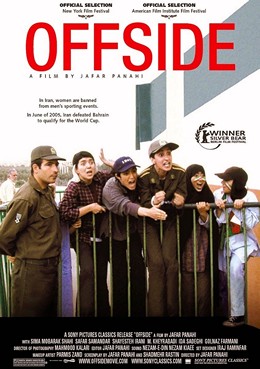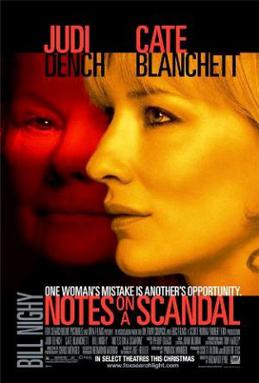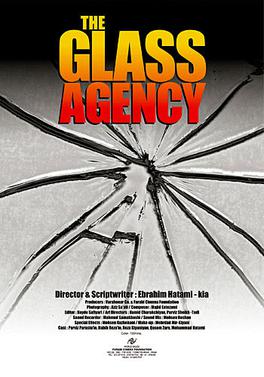
"Restless" is the 22nd episode and season finale of season four of the supernatural drama television series Buffy the Vampire Slayer (1997–2003), and the 78th episode of the series overall. The episode was written and directed by the show's creator Joss Whedon and originally aired on The WB in the United States on May 23, 2000.
Anthony Lane is a British journalist who was a film critic for The New Yorker magazine from 1993 to 2024.

The cinema of Iran, or of Persia, refers to the film industry in Iran. In particular, Iranian art films have garnered international recognition. Iranian films are usually written and spoken in the Persian language.

The White Balloon is a 1995 Iranian film directed by Jafar Panahi, with a screenplay by Abbas Kiarostami. It was Panahi's feature-film debut as director. The film received many strong critical reviews and won numerous awards in the international film fairs around the world including the Prix de la Camera d'Or at the 1995 Cannes Film Festival. The Guardian has listed this film as one of the 50 best family films of all time. The film is on the BFI list of the 50 films you should see by the age of 14.

Offside is a 2006 Iranian film directed by Jafar Panahi. The film is about a group of girls who try to watch a World Cup qualifying match but are forbidden by law because of their gender. Female fans are not allowed to enter football stadiums in Iran on the grounds that there will be a high risk of violence or verbal abuse against them. The film was inspired by the director's daughter, who decided to attend a game anyway. The film was shot in Iran but its screening is banned there.

Notes on a Scandal is a 2006 British psychological drama thriller directed by Richard Eyre and produced by Robert Fox and Scott Rudin. Adapted from the 2003 novel by Zoë Heller, the screenplay was written by Patrick Marber. The film stars Judi Dench, Cate Blanchett, and Bill Nighy, and centres on a lonely veteran teacher who uncovers a fellow teacher's illicit affair with an underage student.

Plan is a 2004 Indian Hindi-language action thriller film, starring Sanjay Dutt, Priyanka Chopra, Dino Morea, Sameera Reddy and Mahesh Manjrekar. It was produced by Sanjay Gupta and directed by Hriday Shetty. The film was a rage and did exceptionally well at the single screens of India whilst performing well at the multiplex cinemas. Overall, the film was given a verdict of average. Released on 9 January 2004, this film is loosely based on the 1997 Hollywood comedy Suicide Kings.

The Color of Paradise is a 1999 Iranian film directed by Majid Majidi.

Oscar and Lucinda is a 1997 romantic drama film directed by Gillian Armstrong and starring Cate Blanchett, Ralph Fiennes, Ciarán Hinds and Tom Wilkinson. The screenplay by Laura Jones is based on the 1988 Booker Prize-winning novel Oscar and Lucinda by Peter Carey. In March 1998, the film was nominated at the 70th Academy Awards for the Best Costume Design.

Sauna, also known as Filth or Evil Rising, is a 2008 Finnish horror film directed by Antti-Jussi Annila. The film was awarded three Jussi Awards in 2009: the best sound design, the best scenography and the best costumes. In addition, the film was nominated for best lead actor, best lead actor and best editing.

Camille Claudel 1915 is a 2013 French biographical film written and directed by Bruno Dumont. The film premiered in competition at the 63rd Berlin International Film Festival.

Closed Curtain is a 2013 Iranian docufiction film by Jafar Panahi and Kambuzia Partovi. It premiered at the 63rd Berlin International Film Festival on February 12, 2013 where Panahi won the Silver Bear for Best Script. It was shot secretly at Panahi's own beachfront villa on the Caspian Sea. Panahi stated that he began shooting the film in a state of melancholy but managed to recover by the film's completion. Closed Curtain is Panahi's second film since his 20-year ban on filmmaking after 2011's This Is Not a Film.

Gold is a 2013 German Western film directed by Thomas Arslan. The film premiered in competition at the 63rd Berlin International Film Festival.

The Glass Agency is a 1998 Iranian drama film written and directed by Ebrahim Hatamikia. It is one of Hatamikia's most successful works and one of the most popular and controversial films of post-revolutionary Iranian cinema.

The Worthy is a 2016 Arabic thriller film directed by Ali F. Mostafa, and produced by Image Nation. The movie was released on 23 February 2017 in the Middle East.
A Story of Children and Film is a 2013 documentary film directed by Mark Cousins. It features clips from movies from around the world that feature children, and scenes featuring the director's niece and nephew.

Mohammad Reza Delpak(Persian: محمدرضا دلپاک is a sound Department Cinema of Iran. He is the first sound designer of Iranian cinema.

Always Be My Maybe is a 2019 American romantic comedy film, written by Ali Wong, Randall Park and Michael Golamco and directed by Nahnatchka Khan. It stars Park and Wong as childhood friends Marcus and Sasha, who have not been in touch since a brief teenage fling ended badly. When Sasha returns to San Francisco to open a restaurant and romantic chemistry from their teenager years remains, Marcus' fears and Sasha's fame and demanding career challenge their potential new relationship. James Saito, Michelle Buteau, Vivian Bang, Daniel Dae Kim and Keanu Reeves also star.

Chess of the Wind, also titled The Chess Game of the Wind, is a 1976 Iranian film written and directed by Mohammad Reza Aslani. The film was screened only once before the 1979 revolution in Iran and was accompanied by a negative reception. After being rediscovered in 2020, the film was released in different countries and was well received.

Fingers in the Wind is a 2022 drama film directed by Chad Murdock. The film explores the mind of a young woman inhibited by an unclear memory from her childhood. Fingers in the Wind had its international premiere at the 2022 New Orleans Film Festival.


















